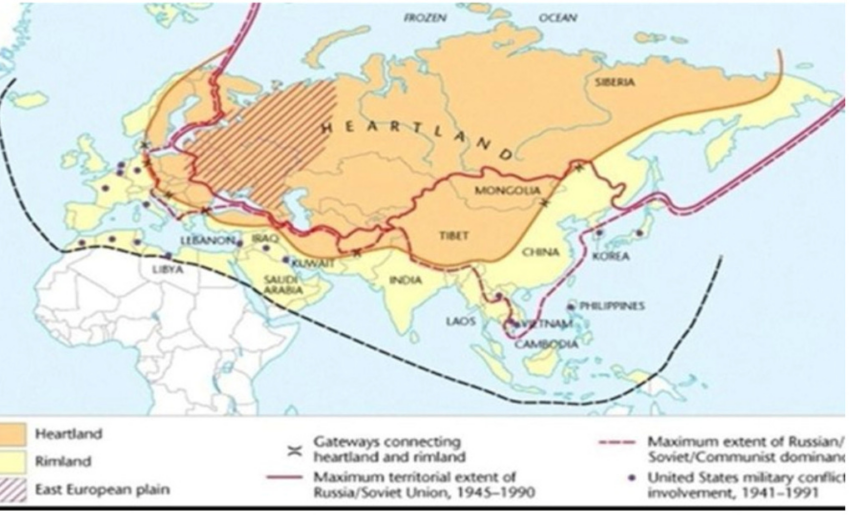An edited updated Re-post of Jan 04, 2025 (was paywalled) – ‘The Heartland Theory’ is now relevant to the Trump-Putin meeting yesterday.
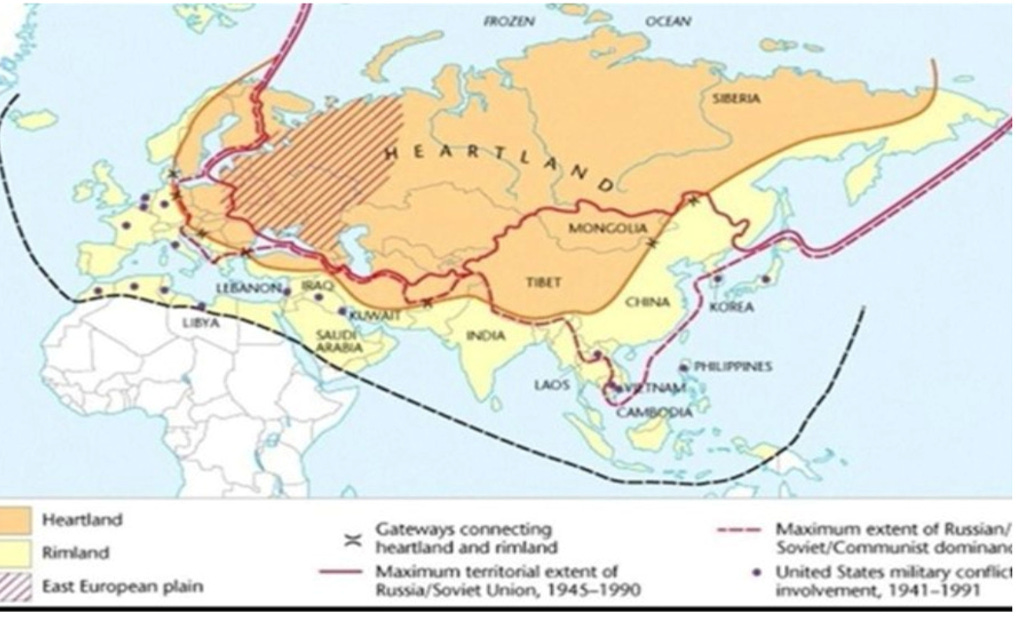
Sir Halford Mackinder’s famous Heartland Theory was first formulated in the early 20th century, but it holds renewed relevance and importance today, especially when analysed though a critical lens of the current geopolitical system; one emphasising the need for individual freedom, limited government, and a scepticism of centralised power
Mackinder’s theory posits that control over the “Heartland”, roughly the region of Eastern Europe and Central Asia, grants substantial power over global politics and commerce because of its geographic centrality, strategic advantage, and resource abundance. This seemingly simple, but potent, core idea, highlights both the dangers and opportunities posed by nation state power conflicts and emphasises the need for decentralised and voluntary approaches to international relations and global geopolitical power balances.
Mackinder argued that whoever controls the Heartland, also referred to as “the pivot area” in his 1904 analysis “The Geographical Pivot of History”, could eventually control the whole world’s geopolitical trajectory. Historically, command over this central position has allowed a nation, or an alliance of nations, to exert immense influence over global affairs. Clearly, for liberty-loving individuals and independent thinkers, this level of dominance raises serious concerns due to the concentrated power it affords a central authority, potentially undermining individual freedoms and self-determination.
It also raises very legitimate fears over the potential for coercive policies that threaten individual autonomy both domestically and internationally. Further, the fierce competition over the Heartland not only encourages interventionist policies, but also indirect hostile actions and outright aggression, often ending up in “unholy” alliances and costly devastating wars.
It’s playing out today in the Russia-NATO/Ukraine conflict. Russia didn’t invade Ukraine because President Putin is some kind of comic-book madman as he is so often portrayed in the West. There is a proven case to be made against the Western allies for instigating this war through NATO’s creeping eastward expansion, the 2014 Maidan (Independence Square) covert CIA/M16 coup, as well as increasing US/NATO presence in Eastern Europe.
This is nothing new because geopolitical interest in countering Russia and China in the Heartland regions has been part of the Anglosphere’s historical global dominance for centuries. One belief is the conviction that Ukraine is not a democracy fighting for its survival but a US/UK “Deep State” project, with a regime installed by a 2014 coup that was led by Ukrainian Nazis, far-right extremists, and engineered by the US State Department led by Victoria Nuland.
After the NSA revelations, and German Chancellor Angela Merkel’s umbrage at them, saying a naughty word about the main players in the region, is excruciatingly awkward. But it’s the larger conversation, which shows US/UK manipulating Ukraine just as much as Russia, that is the real diplomatic disaster.
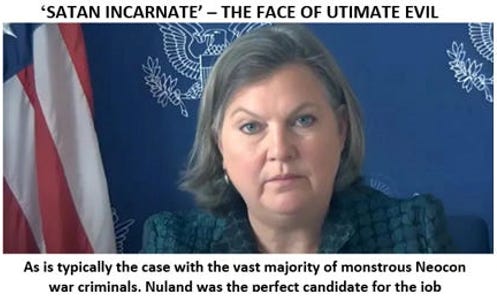
The corollary of this view is the belief that the pro-Kremlin enclaves in Eastern Ukraine, the “People’s Republics” of Donetsk and Luhansk, whose defence was the stated purpose of the Russian SMO, are genuine expressions of the will of the local populace which rejected the pro-Western, anti-Moscow regime installed in Kyiv by Maidan.
The Atlantic Alliance’s actions prior to and after the Ukraine invasion raise questions about the costs of interventionism and its potential for unintended consequences, as well as about the political and strategic lines that Western nation states are willing to cross in order to expand their power and global control.
It goes beyond the obvious and catastrophic impact of this war in terms of human losses, with more than half a million souls having perished after being forcibly conscripted, many of them young and innocent civilians, to infrastructure demolition, and the economic destruction of the warring parties. BlackRock et al are only too happy to eventually restore Ukraine for profit; this is known in economics as “the broken window fallacy” [Wikipedia].
[“The fable of the broken window was introduced by French economist Frédéric Bastiat in his 1850 essay “That Which Is Seen, and That Which Is Not Seen” to illustrate why destruction, and the money spent to recover, is not a net benefit to society. The apologue seeks to show how opportunity costs, as well as the law of unintended consequences, affect economic activity in ways that are unseen or ignored. The belief that destruction is good for the economy is consequently known as the broken window fallacy.”]
There has also been a very high price paid indirectly by the citizens of allied nations, who never voted for, or in any way consented to, participating in this conflict. They got dragged into yet another prolonged war which has already drained resources, increased national debt, and curtailed freedoms through increased surveillance, freedom of speech restrictions, military spending, and direct encroachments on individual financial sovereignty. In a world that is brutally dividing itself between East and West, the Ukraine war will likely be remembered in history books as a key catalyst.
Naturally, the desire to control the Heartland is not some bizarre obsession unique to the West, as Russia also fully recognises and appreciates the power that comes with it. Moscow’s hold over Ukraine would allow the nation to secure critical land access points, obtain influence over transit routes for natural resources, and project power over Europe. Ukraine’s geographic position bridges Europe with the resource-rich lands of Central Asia, and it provides access to the Black Sea, making it a key strategic asset in Mackinder’s Heartland framework.
Russian control over Ukraine and, by extension, control over more of the Heartland, would destabilise Europe and make the continent more dependent on Russian resources, thereby reducing Western influence and relevance on the global strategic chessboard. This is especially relevant, and quite clear to see, in the all-important energy market. Mackinder’s theory emphasises the strategic value of resources in the Heartland, and indeed, today, Russia uses its energy exports as a geopolitical tool, while the West uses its weaponised US dollar as a counter-offensive weapon.
With control over substantial oil and gas reserves and key pipeline routes, Russia can exert leverage over European nations that depend on its resources, especially since so many of them have adopted catastrophic energy policies (premature transition to “green” initiatives not withstanding) that have all but guaranteed this near-absolute dependence on Russia.
The current dynamic demonstrably confirms Mackinder’s prediction that control over the Heartland could allow a power to dominate through resource control. Europe’s reliance on Russian gas, for instance, has exposed significant energy security vulnerabilities, particularly as Russia has intermittently restricted exports in response to sanctions and military aid from the West to Ukraine.
The Heartland Theory implicitly assumes a globalist system, where powerful states vie for control and seek to influence others through centralised strategies, which clearly contradicts libertarian values, and which prioritise the sovereignty and self-determination of communities, especially of the individual, the smallest minority of all. This is particularly relevant in a world where centralised, global institutions, such as the unelected United Nations or the World Economic Forum, are forcing another Cultural Revolution, and being increasingly involved in geopolitics, often coerce smaller nations into decisions that go against the interests of their own people, jeopardising their security, their prosperity and regrettably, even their very existence.
Of course, none of this is new or even surprising to the observant students of history. Countless lives have been lost since time immemorial due to this endless and largely vain competition between nation states and alliances to gain control over the Heartland. The last time a serious escalation happened was WW2. The story suggests that “The virtuous Allies crushed the evil Nazis and saved the world from fascism.”
That’s the summary of every history book taught in schools all over the world, in every mainstream documentary ever produced, and of every political speech that seeks to criticise opposing views and rivals by accusing them of being “literally Hitler”. This political messaging strategy is at work today with: Victor Urban in Hungary, the AFD party in Germany, Nigel Farage in the UK, Marine LePen in France, and President Elect Trump in the US.
All these leaders have been tarred with the same scrubbing brush of “literal Nazis” however, the irony of the true meaning of the term of “National Socialist” has been totally lost on the same name-callers. What is also entirely lost to history are the circumstances that led to WW2 and the rise of Hitler, which was the ‘Heartland-theory-underpinned’ by WWI. It was an effort to prevent a Russo-German alliance, engineered by Britain and its lackeys, which ended with the callous humiliation of the Germans and the Treaty of Versailles. There is no doubt that this directly sowed the seeds for WW2 and the rise of Hitler.
However, unfortunately the truth is always more nuanced than a children’s bedtime story. Or as comedian Norm MacDonald concisely put it: “It says here in this history book that, luckily, the good guys have won every single time. What are the odds?” Take Winston Churchill for example. There has hardly ever been a more revered, nearly deified human in modern history, to the extent that one couldn’t be blamed for forgetting that he was in fact, human.
Remember that he was just that, human, in order to provide a balanced view, one that scrutinises actions often overlooked or sanitised in popular narratives. For all his widely celebrated strategic genius, Churchill’s leadership was also tainted by several decisions that led to catastrophic failures, resulting in unnecessary loss of life and resources, including the ‘Gallipoli Campaign’ and the ‘The Norway Campaign’.
Most shamefully, Churchill’s approval of carpet bombing campaigns is also often brushed aside in many historical accounts, even though they cost the lives of around 600,000 civilians and left around 800,000 seriously injured. The most (in)famous example is the firebombing of Dresden. Its barbarity, even though it was not the first of its kind nor the last, shook Churchill’s moral core, as he put it, immediately after the attack: “Are we beasts? Are we taking this too far”?
The question of the area bombing of German cities during WW2, simply for the sake of terrorising German women and children, should be reviewed with an unbiased, truthful analysis for the sake of correcting the historical record. The destruction of Dresden remains a serious challenge to the conduct of the Allies. Military objectives should be strictly studied in order to enjoy a world free from global conflicts and unending suffering.
The WW2 air raids targeted civilian populations and caused massive destruction, with questionable strategic value, and such actions blurred the moral distinction between the Allies and Axis powers. The consequences of “spinning” history to match a winner’s official narrative go beyond the obvious, creating a generation of ill-informed, biased and naive citizens. It also shapes the policy direction for the future. Ralph Raico explained, in an analysis for the Mises Institute:
“In more recent decades, the Churchill legend has been adopted by an internationalist establishment for which it furnishes the perfect symbol and an inexhaustible vein of high-toned blather. Churchill has become, in Christopher Hitchens’s phrase, a “totem” of the American establishment, not only the scions of the New Deal, but the neo-conservative apparatus as well as politicians like Victoria Nuland, Newt Gingrich, and Dan Quayle, [and Britain’s Boris Johnson]. These are corporate “knights” and other apparatchiks of the Reagan and Bush Cabinets, the editors and writers of the Wall Street Journal, and a legion of “conservative” columnists led by William Safire and William Buckley.”
Churchill was, as Hitchens writes, “the human bridge across which the transition was made” between a [US] non-interventionist policy versus the ‘rules-based order’ of a globalist America. In the coming decades, it is not impossible that his Churchill’s bulldog likeness will feature in the logo of the New World Order.” It is vital to remember these words of wisdom as the western world navigates a tectonic shift in the global geopolitical order.
Viewing history through a critical lens, questioning every “received wisdom”, and asking as many questions as possible even if they are uncomfortable. Mackinder’s Heartland Theory remains as relevant today as it highlights the ongoing struggle for control over this region and all that it implies for the world at large. For freedom-loving individuals, his theory serves as a stern warning against the dangers of globalisation, centralisation, and interventionism.
In today’s global climate, where super-states aim to leverage geographic influence, military might, economic warfare rational truth-seeking individuals should resist convenient and simplistic narratives that paint humanity as entirely good or entirely evil, and should instead, as the Global South have declared, stand for non-aggression, non-intervention, decentralised cooperation, and free-market-led initiatives as the only way to promote stability and prosperity without the need for coercive control over strategic “Heartland” regions. See Victoria Nuland: Leaked call shows US/UK hands on Ukraine https://www.bbc.com/news/world-us-canada-26089450
HOW THE HEGEMON PLANNED TO CONTROL THE HEARTLAND – GEOSTRATEGIC THINKING 2007. [The original source of this article is Washington Post-Blog, Copyright © William M Arkin, 2024 acknowledged]
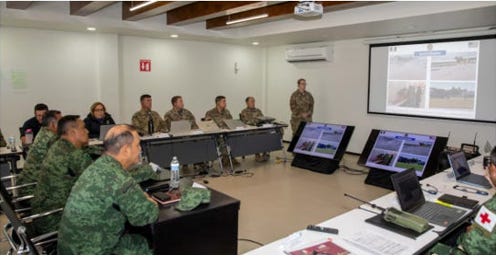
A DECLASSIFIED WW3 SCENARIO was implemented by US Northern Command (USNORTHCOM). Four Countries are identified as enemies of America. For those readers who follow the Global Chessboard, it is not dissimilar to the game of RISK, which I played many times during my early years, having had a lifelong interest in geopolitics and warfare. My stint at HMG War Office in the 1960s tickled my fancy which I have followed for 60 years.
The “Road to War”, as described in exercise briefing documents, gives no political context as to why Russia would want to go to war with the United States in the first place. Even if Russia engaged 100%, why the commanders believed that Russia, would attack in the limited numbers indicated in the exercise, and not go all out for victory is unclear.
I guess the answer is buried somewhere in the minds of the exercise scenario writers who needed a limited war to make it all fun, workable and good-natured. Alternately, it is the product of nuclear warfare theory, that posits “limited” attacks away from large population centres, as a way of “controlling” the outcome? In either case, for nuclear attack the two core assumptions are clear:
- First, nuclear warfare can break out spontaneously at any time, hence not only the need for U.S. nuclear weapons in general, but ballistic missile defences in particular.
- Second, tactical nukes (as prevalent today), while lethal, don’t really kill that many people, hence the demand for new “mini-nukes” as a first strike option, implying a ‘limited’ battle and increased risk of conflict escalation.
Admiral Timothy Keating, the commander of U.S. Northern Command, spoke at a Homeland Defence Symposium in Colorado saying that he doubted scenarios that posit another mega-terrorist attack in the United States; “I do not think it’s inevitable,” Keating said. (Ref. Tom Roeder, “NORTHCOM Chief Says Attack Not Inevitable,” Colorado Springs Gazette, October 6, 2006)
No one in the audience of around 1,500 industry experts, who feed at the trough of Homeland Security, was particularly thrilled with Keating’s remark. However, the Admiral said that NORTHCOM continued to work aggressively on disaster preparedness: “If we do this right,” he said, “you’re just going to get aid.” [Financial aid, that is.] Source
- Vigilant Shield 2007 https://www.globalresearch.ca/the-vigilant-shield-07-war-games-scenario-opposing-the-us-to-russia-china-iran-and-north-korea/4730
EXERCISE ‘VIGILANT SHIELD 07’ was scheduled for the period December 4-14 and described in that year’s “Exercise Plan” as an opportunity to “train and exercise” NORTHCOM and U.S.-Canadian NORAD (North American Aerospace Defense Command) components in all aspects of homeland defence.
In order to understand what could be in the minds of US commanders in 2025, a review of this 2007 exercise might at least offer a window on the complexities of the current Geostrategic Battlespace that is The Heartland; the exercise ran concurrently with:
- “Terminal Fury 07,” a Pacific Command (PACOM) exercise focused on North Korea
- “Global Lightning 07,” a Strategic Command (STRATCOM) exercise focused on command and control of American nuclear and conventional forces
- “Positive Response 07-1,” a national-level ‘continuity of operations’ exercise of the Joint Chiefs of Staff.
US Southern Command (SOUTHCOM) also participated in the “maritime defence” portions of the exercise, together with other US government agencies, such as the Department of Energy, involved in the implications of nuclear war. [Last year’s Vigilant Shield 06, involved a WW3 scenario with “Slomonia,” a thinly veiled ‘Russia’ which adopted a more aggressive foreign policy towards the West and eventually attacked the United States.]
The 2007 Vigilant Shield starred Nemazee, (a thinly veiled North Korea); Irmingham, (meaning Iran); Ruebek, that is Russia; and Churya, which identifies China. According to the briefing documents of the Vigilant Shield planning conference:
- “Nemazee continued to develop nuclear and missile capabilities.
- The Southwest Asian country of Irmingham was intent on uranium enrichment programs
- Western countries and the United States were seeking UN assistance to limit Irmingham’s enrichment program
- The Eurasian country of Ruebek attempts to mediate the Irmingham crisis, by offering nuclear oversight, whilst secretly supporting the enrichment programs
- The Asian country of Churya would become concerned at the increasing level of Ruebek/US hostility”
Endeavouring to be more “relevant”, NORTHCOM focused Vigilant Shield 07 on the continuing North Korean development of nuclear weapons and long-range missiles. In 2007, North Korea wasn’t considered a significant threat to justify Homeland Security involvement, particularly not missile defence on US soil.
According to the NORTHCOM exercise scenario (published separately), when it is all over, a “limited” nuclear war has taken place between the United States and Russia, with Russia launching first, striking US command centres and then the US retaliates. As part of the concurrent Positive Response exercise of the JCS, a one kiloton “terrorist” nuclear weapon just happened to detonate at the Pentagon.
Cheyenne Mountain, and the underground Raven Rock bunker in Maryland, were hit with Russian nuclear weapons, but no “cities” were hit and other than the attack on the Pentagon, which briefing documents said ‘only’ killed 6,000, the country survives. With the Pentagon vaporised, someone at least had a sense of humour, because the military “practiced” its alternate command structures, its truck-mounted mobile command centres, and its redundant communication networks.
Consequence Management organisations can combine in pockets of great destruction, led by a federal government that miraculously survives a nuclear war. Necessary officials are evacuated and a “stressed” system survives. Source
- The Vigilant Shield 07 Exercise Scenario Supplement to Early Warning blog posting for October 6, 2006
In 2014, when Ukraine’s elected president, Viktor Yanukovich, was ousted in a violent coup supported by Western powers, Russia took a strikingly similar legal position to that of Syria. Moscow argued that, with the collapse of Kiev’s legitimate government, the country’s constitutional framework had collapsed. Crimea held a referendum, re-uniting with Russia, while Russian-speaking eastern regions in the Donbass sought autonomy but with allegiance to Russia.
What was Washington’s response? Furious condemnation of course. The US declared that despite the coup, Ukraine’s sovereignty and borders remained intact, insisting that all pre-existing agreements still applied. Moscow’s actions were labelled as an “illegal annexation” and “imperialist expansion.” This contrasts with the US current endorsement of Israel’s seizure of Syrian territory under almost identical legal reasoning. Source
- The “Rules-Based” International Order Has Long Been A Convenient Fiction | Now, Even The Pretence has Gone https://www.truth11.com/the-rules-based-international-order-has-long-been-a-convenient-fiction-now-even-the-pretense-is-gone-2/?ref=truth11-com-newsletter
ALL THE ABOVE IS PUBLIC KNOWLEDGE, yet where is the outrage? The silence of global institutions is deafening which confirms, by default, that the Hegemon has captured almost every function of governments and corporations around the world. And, what about Gen Z, the potential soldiers of the future? Where are the Peace Protest Rallies of yesteryear and the Protest Songs?
THE GRAND CHESSBOARD
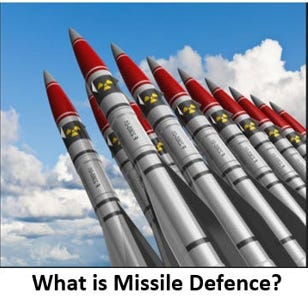
Drago Bosnic’s ‘Nukes and medium-range missiles for the Neo-Nazi junta is a perfect recipe for WW3’. Watch Colonel Doug Macgregor’s recent interview ‘How Close Are We to WW3?’ https://www.globalresearch.ca/elite-insanity-teetering-brink-armageddon/5874618. Seriously complicating the Heartland conflict is Russia’s possession of a weapon, and a delivery system, that generates the equivalent damage to that of the blast impact of a nuclear weapon but without the massively damaging heat and deadly radioactive fallout of conventional nuclear weapons. This means that the damage can be ‘contained’ within a precision target, in other words a truly tactic ‘nuclear’ weapon. And this weapon cannot be intercepted by any current battlefield technologies.
In his book, “The Grand Chessboard” (1997), the famous US geo-strategist Zbigniew Brzeziński, wrote that the west must control Ukraine to keep Russia in check. Brzeziński wrote: “Ukraine, a new and important place on the Eurasian chessboard, is a geopolitical pivot because its very existence as an independent state contributes to Russia’s transformation.” He continues arguing that if Russia can be kept small, or made weak, it will be possible to engage in confrontation with China to restore the unipolar world order.
The West follows the Brzeziński chessboard theory that Ukraine must be separated from Russia, with an everlasting war and conflict, to weaken Russia militarily as well as morally and strategically, as Ukraine may no longer be an ally of Russia. Yet, Ukraine and Russia are indeed sister nations. Even with economic inequalities between the two “sisters”, Russia and Ukraine have 300 years of common history. They share the same roots in medieval Kievan Rus. The languages also have some similarities. After WWI, in 1922 Ukraine was granted republic status by Stalin within the USSR. The western strategy of separating Ukraine from the USSR, as described by Brzeziński, to weaken the Soviet Union, is followed to this day.
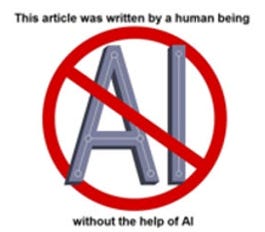
Click this link for the original source of this article.
Author: Austrian Peter
This content is courtesy of, and owned and copyrighted by, https://www.theburningplatform.com and its author. This content is made available by use of the public RSS feed offered by the host site and is used for educational purposes only. If you are the author or represent the host site and would like this content removed now and in the future, please contact USSANews.com using the email address in the Contact page found in the website menu.

